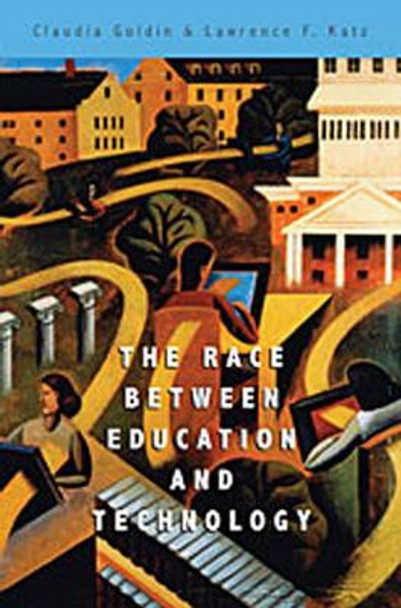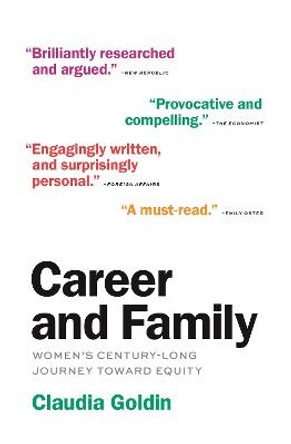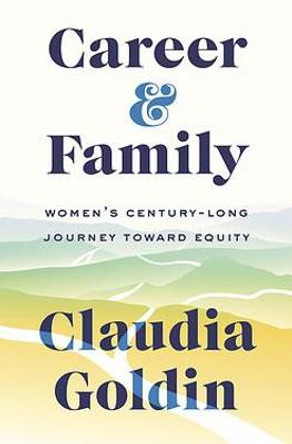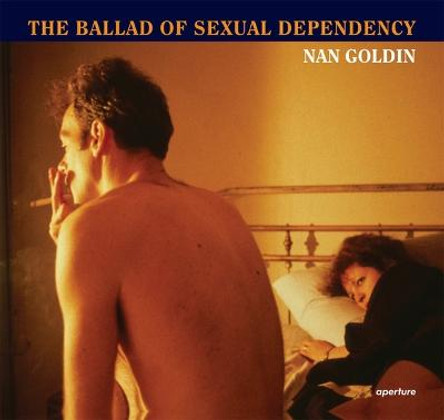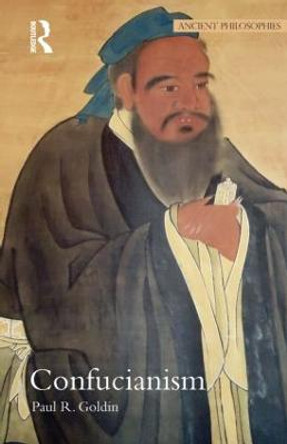Description
This book provides a careful historical analysis of the co-evolution of educational attainment and the wage structure in the United States through the twentieth century. The authors propose that the twentieth century was not only the American Century but also the Human Capital Century. That is, the American educational system is what made America the richest nation in the world. Its educational system had always been less elite than that of most European nations. By 1900 the U.S. had begun to educate its masses at the secondary level, not just in the primary schools that had remarkable success in the nineteenth century.
The book argues that technological change, education, and inequality have been involved in a kind of race. During the first eight decades of the twentieth century, the increase of educated workers was higher than the demand for them. This had the effect of boosting income for most people and lowering inequality. However, the reverse has been true since about 1980. This educational slowdown was accompanied by rising inequality. The authors discuss the complex reasons for this, and what might be done to ameliorate it.
This book represents the best of what economics has to offer, combining a broad theoretical perspective, careful consideration of data, detailed lessons from economic history, and a close look at the present. -- Alan Krueger, Princeton University A masterful work by two leading economists on some of the biggest issues in economics: economic growth, human capital, and inequality. There are fundamental insights in the book, not just about our past but also our future. Rigorous but not overly technical, this beautifully written book will appeal to educated lay people and economists alike. -- Steven D. Levitt, University of Chicago, co-author of Freakonomics The Race Between Education and Technology will stand as the definitive treatment of changes in income distribution and their causes, as well as of possible countervailing policies towards rising inequality. This is empirical economic scholarship at its finest. -- Lawrence Summers, Harvard University A staggering achievement of historical research and analysis and required reading for anyone who's tired of glib, ideologically-inspired, trendy prescriptions for how to fix America's education system. -- Sylvia Nasar, author of A Beautiful Mind An impressive combination of extensive historical research, careful empirical analysis, and thoughtful commentary on one of the most important questions of the day: to what extent does increasing inequality in incomes stem from our failure to increase educational attainment? -- William G. Bowen, President Emeritus, The Andrew W. Mellon Foundation The Race Between Education and Technology is a most important study, both for what it teaches us about the past and also in presenting policies for the future if America is to regain its world leadership in education. -- Stanley Engerman, University of Rochester
About the Author
Winner of the Nobel Prize in Economic Sciences, Claudia Goldin is the Henry Lee Professor of Economics at Harvard University. Lawrence Katz is Elisabeth Allison Professor of Economics at Harvard University.
Reviews
One of the most important books of the year. -- Nicholas D. Kristof * New York Times *
Essential reading...Goldin and Katz give a broad historical view of the role of education in economic growth in the U.S. They make the case that, after a century of leading the world in supplying the educated workers needed to serve technology, the U.S. has fallen behind in education. -- Thomas F. Cooley * Forbes *
Goldin and Katz's book is excellent. -- Jim Manzi * New Republic *
This is the most important book on modern U.S. inequality to date. -- Tyler Cowen * marginalrevolution.com *
If you want to understand the causes of the innovation deficit, I'd recommend adding one serious book to your summer reading list: The Race Between Education and Technology. -- David Leonhardt * New York Times *
[Goldin and Katz] tackle the most important U.S. economic trend, and, hence, most critical domestic issue--growing income inequality...[America] now has the most unequal income and wage distributions of any high-income nation...Goldin and Katz's careful documentation of the changes in income distribution is an important public service. This alone would make their book essential reading. Yet they also offer a powerful explanation for what has driven changes in income inequality and point to solutions for addressing it...The good news is that if Goldin and Katz are right, the cure for income inequality is one most Americans would intuitively support: improving mass education. Mr Obama's spin-doctors should start translating Goldin and Katz's book into a campaign slogan at once. -- Chrystia Freeland * Financial Times *
Masterful...As the book's title suggests, whether inequality increases or not is best thought of as an ongoing race between education and technology. Combining this simple but appealing idea with a deep knowledge of the histories of the U.S. labor market and educational institutions, Goldin and Katz conclude that whereas education was winning the race for most of the 20th century, technology caught up in the 1970s and has since prevailed. The authors' most insightful point is that the root cause of the recent growth in inequality is not faster technological progress during the past three decades but rather the surprising stagnation in the level of education of young Americans. -- Thomas Lemieux * Science *
A staggering achievement of historical research and analysis and required reading for anyone who's tired of glib, ideologically-inspired, trendy prescriptions for how to fix America's education system. -- Sylvia Nasar, author of A Beautiful Mind
Claudia Goldin and Lawrence Katz have produced a definitive economic history of American education...[It's] tightly reasoned and easy to grasp by anyone who cares about the country's educational history. -- Peter H. Lindert * eh.net *
This book represents the best of what economics has to offer, combining a broad theoretical perspective, careful consideration of data, detailed lessons from economic history, and a close look at the present. -- Alan Krueger, Princeton University
A masterful work by two leading economists on some of the biggest issues in economics: economic growth, human capital, and inequality. There are fundamental insights in the book, not just about our past but also our future. Rigorous but not overly technical, this beautifully written book will appeal to educated lay people and economists alike. -- Steven D. Levitt, University of Chicago, co-author of Freakonomics
The Race Between Education and Technology will stand as the definitive treatment of changes in income distribution and their causes, as well as of possible countervailing policies towards rising inequality. This is empirical economic scholarship at its finest. -- Lawrence Summers, Harvard University
An impressive combination of extensive historical research, careful empirical analysis, and thoughtful commentary on one of the most important questions of the day: to what extent does increasing inequality in incomes stem from our failure to increase educational attainment? -- William G. Bowen, President Emeritus, The Andrew W. Mellon Foundation
The Race Between Education and Technology is a most important study, both for what it teaches us about the past and also in presenting policies for the future if America is to regain its world leadership in education. -- Stanley Engerman, University of Rochester
The Race Between Education and Technology contains many tables, a few equations and a powerfully told story about how and why the United States became the world's richest nation--namely, thanks to its schools...Beginning in the 1970s, however, the education system failed to keep pace, resulting, Ms. Goldin and Mr. Katz contend, in a sharply unequal nation...It is nice to be reminded, in a data-rich book, that greater investments in human capital once put Americans collectively on top of the world. -- Stephen Kotkin * New York Times *
Goldin's and Katz's thesis is that the 20th century was the American century in large part because this country led the world in education. The last 30 years, when educational gains slowed markedly, have been years of slower growth and rising inequality. -- David Leonhardt * New York Times Magazine *
Claudia Goldin and Lawrence Katz establish a clear link between the number of high school and college graduates produced in any modern society and its economic growth. -- Thomas D. Elias * Appeal-Democrat *
[Goldin and Katz] combine an acute sense of history with a skillful use of statistics. -- Andrew Hacker * New York Review of Books *
During the 20th century both technology and education raced forward in the US, generating massive economic expansion and rising standards of living. Throughout the century, technological changes increased the relative demand for skilled labor, while the rapid expansion of first high schools and then higher education simultaneously increased the relative supply of skilled labor. Goldin and Katz carefully examine the historical and economic forces behind this expansion in education, extracting crucial evidence from the remarkable Iowa State Census of 1915, and they argue very plausibly that the relative demand for skilled labor grew at a fairly constant rate over the century. They conclude that "education ran faster" than technology "during the first half of the century," causing a considerable drop in economic inequality, but that "technology sprinted ahead of limping education in the last 30 years," leading to the recent upsurge in inequality. The rate of return on educational investments has become, once again, very high. Why have education levels increased so sluggishly in the face of these massive rewards? The answers are not entirely clear, nor are the optimal public policies, but the authors offer much food for thought. A must read. -- R. M. Whaples * Choice *
The general brilliance of illumination makes this book a feast of provocation. -- Trevor Butterworth * Forbes.com *
One of the most comprehensive analyses of the spread of the American educational system throughout the 20th century. -- Eduardo Porter * New York Times *
Claudia Goldin and Lawrence F. Katz's magnum opus...[An] impressive work...Enlightens us to rethink the social-economic and cultural environment of education, the close relationship between education and technology, and the fundamental aims of education. -- Shiyu Xu * Beijing International Review of Education *
Awards
Winner of PROSE Awards 2008.
Book Information
ISBN 9780674035300
Author Claudia Goldin
Format Paperback
Page Count 496
Imprint The Belknap Press
Publisher Harvard University Press

